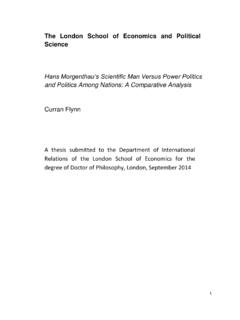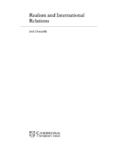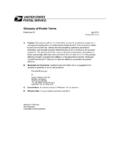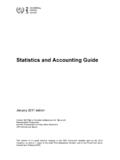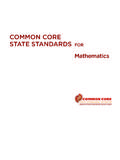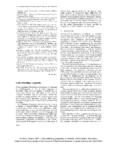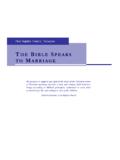Transcription of The London School of Economics and Political …
1 The London School of Economics and Political Science Power and Its Forms: Hard, Soft, Smart Matteo Pallaver A thesis submitted to the Department of international relations of the London School of Economics for the degree of Master of Philosophy. London , October 2011. Declaration I certify that the thesis I have presented for the examination for the MPhil degree of the London School of Economics and Political Science is solely my own work except where I have clearly indicated that it is the work of others, in which case the extent of any work carried out jointly be me and any other persons is clearly identified. The copyright of this thesis rests with the author. Quotation from it is permitted, provided that full acknowledgment is made.
2 This thesis may not be reproduced without prior written consent of the author. I warrant that this authorization does not, to the best of my belief, infringe the right of any third party. 2. Abstract What is smart power? What kind of power is it? Is it really a new form of power? How many forms, features, and shapes does it take? How can we recognize and manage it? How do scholars describe it? This MPhil thesis aims to answer these and other questions regarding the dimension of power with a specific focus on smart power. This is a first attempt to study smart power in the broader context of power analysis and therefore I will follow two approaches. First of all, I will contextualize smart power, touching on the debate of power as an academic and Political concept.
3 Secondly, the idea is to investigate how power manifests itself in the realms of international and social relations . To this end, I. will address three ideal forms of power, notably hard, soft and finally - smart power. We already know that hard power is commonly associated in IR with realism: it is about power politics, force, and violence. Hard power is, to a certain extent, the oldest form of power; it is connected to the idea of an anarchic, untamed international system, where countries do not recognize any superior authority. Order is the result of competition for power and wars. The possession and acquisition of resources is the key to success. Soft power is something completely different.
4 In order to understand soft power a methodological change is required. A state, an organization or a single person can exercise power with means other than violence and force. Persuasion, example, seduction, and myth: these are the resources of soft power. It is being able to convince or persuade others to follow your example, to want what you want, rather than coercing them. Soft power is about a world in which international institutions matter, in which war is not the only way to settle conflicts and in which the ones to succeed are the most powerful, in terms of natural, economic and financial resources and are not necessarily the best equipped. And finally, what is smart power?
5 Where does it come from? We know that smart power is a new and to a certain extent popular concept, which was coined by Joseph 3. Nye in the USA and is used to describe a new way of dealing with and managing power. Nye conceptualizes smart power as something lying somewhere between hard and soft power, a sort of third way in the complex jungle of power relations . But Nye also stresses that smart power is something beyond hard and soft, a sort of new approach that fits particularly well into the realm of international relations and foreign politics. This is why we will analyse Nye's approach in depth, as well as the US. debate about smart power and the concrete use of this concept by the US.
6 Administration. Finally, we will investigate why smart power is becoming popular in the EU as well. Here again, policy-makers seem confident about using this new concept as a Political programme that involves institutions and policy reforms. To sum up, my argument is that smart power is definitely a new form of power and this MPhil dissertation aims at introducing it into the academic debate, studying it from a theoretical, scientific point of view, investigating its origins, and the historical and Political context in which it gained popularity and finally testing its possible declination in real scenarios of international politics. 4. Acknowledgements I would like to thank my supervisor, Professor Spyros Economides, - Senior Lecturer in international relations and European Politics, Deputy Director of Hellenic Observatory at the European Institute and the Department of international relations , - for his professional advice and support.
7 My work was funded by the Fondazione Cassa Rurale di Trento. 5. Table of Contents First Chapter .. 9. An Introduction To Power: Hard, Soft, Smart .. 9. Research Questions .. 9. Introducing Power: Hard, Soft, 12. Main Working Hypotheses .. 14. Advantages and Opportunities of this Approach .. 16. Limits and Problems of Smart Power as an Academic 21. Structure and 23. Table of Contents .. 24. Second Il segnalibro non definito. The concept of 28. Introduction .. 28. What is Power and why is it so relevant in IR? .. 29. The Dispute on Max Weber's 36. Methodological Concerns .. 38. A Challenge to Weber's 40. Heinrich Popitz on the Institutionalisation of Political 44. Social 46. Command and Obedience.
8 48. Legitimacy and its 49. A typology of Legitimacy .. 50. Third Chapter .. 53. The Concept of Power in international relations .. 53. 6. Introduction .. 53. Classical Realism and Power .. 55. Structural Realism and Power .. 58. Power: resources, actors, events and 65. Multiple Conceptions of Power .. 69. Conceptualizing Power .. 74. Barnett and Duvall's Taxonomy of 75. Forth Chapter ..80. Forms of power: hard and soft power .. 80. Introduction .. 80. Hard 81. Hard power in international relations .. 84. Soft power .. 86. Soft power resources .. 89. Soft power in IR .. 91. A pattern of power choice .. 97. Fifth Chapter ..Errore. Il segnalibro non definito. The concept of Smart Power: An American Story?
9 101. The main features of smart 103. Smart Power: a Political 107. Smart power: a different approach towards power .. 111. Why smart power was born in the US .. 113. Anti-Americanism today .. 116. The US premises of smart power .. 120. Getting ready for smart power .. 122. 127. 7. Smart power: is the European way possible?.. 127. The diffusion of smart power in the Smart power hits the EU smart power: work in progress?..131. Conclusion: is there a role for smart power?..135. Bibliography .. 138. 8. First Chapter An Introduction To Power: Hard, Soft, Smart Research Questions Introducing Power: Hard, Soft, Smart Main Working Hypotheses Advantages of and Opportunities for This New Approach Limits and Problems of Smart Power as an Academic Concept Structure and Methodology Table of Contents Research Questions Why writing a thesis on smart power?
10 The discipline of international relations has tended to treat power as the exclusive province of realism. Associated with this tendency, there is a widely accepted conceptualization that is viewed as the only way to understand power. The disciplinary tendency to associate power with realism and to work primarily with the realist conceptualization partly owes to the fact that rivals to realism typically distance themselves from "power" considerations. This feature has been especially visible in recent years, as neoliberal institutionalists, liberals and constructivists have attempted to demonstrate their theoretical salience by demonstrating how "power" variables are not causally consequential in their explanation of empirical outcomes.
